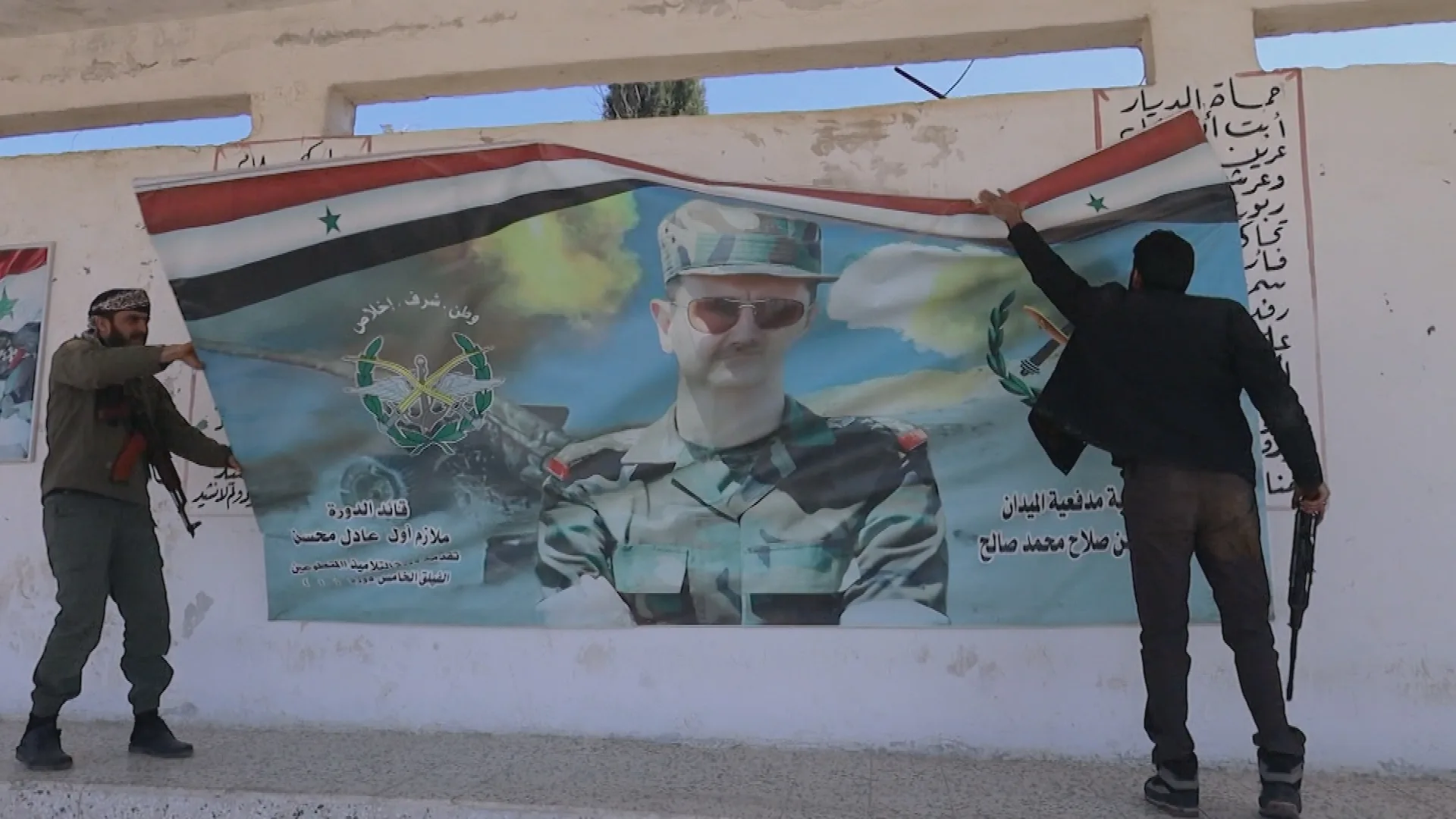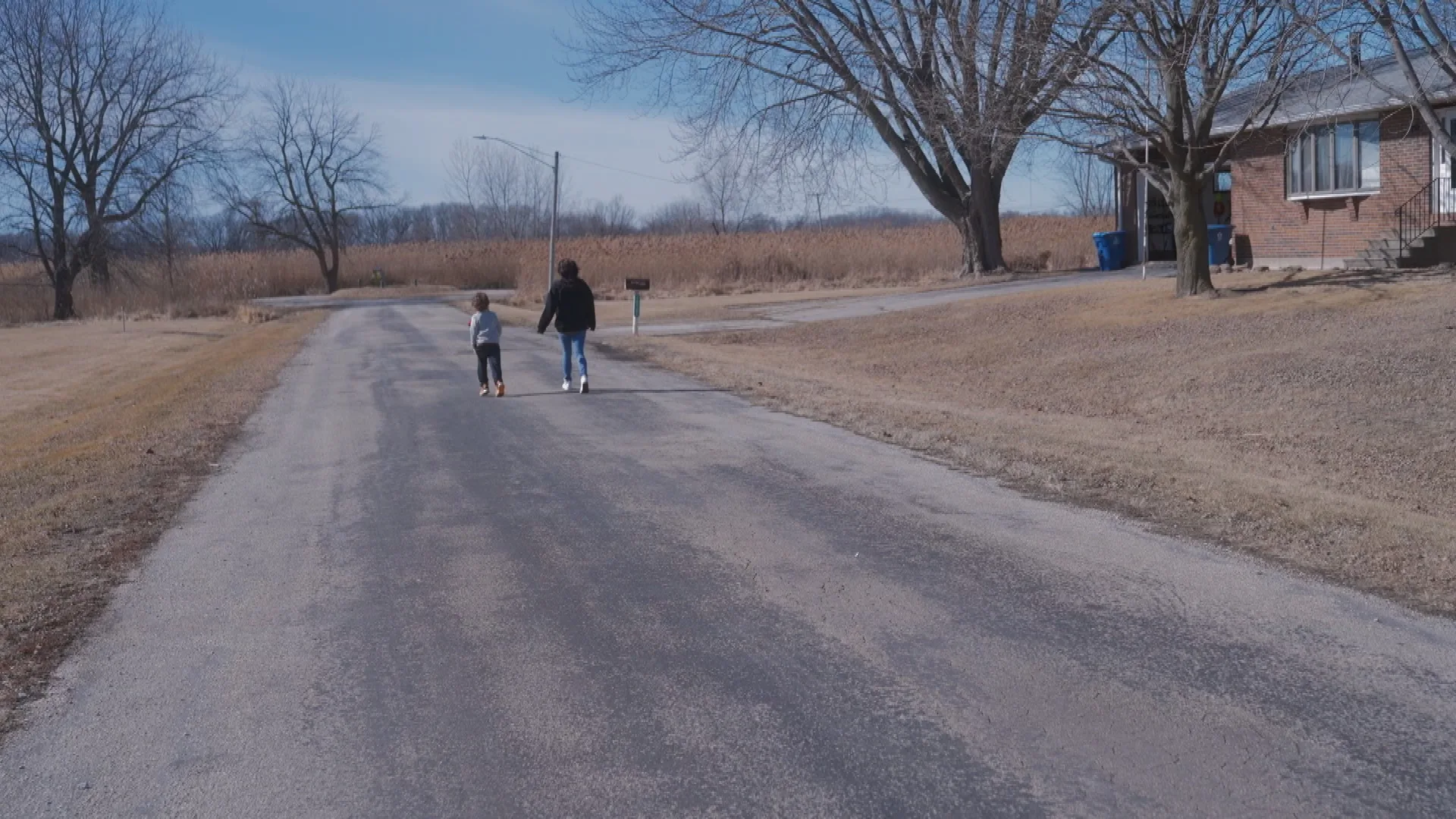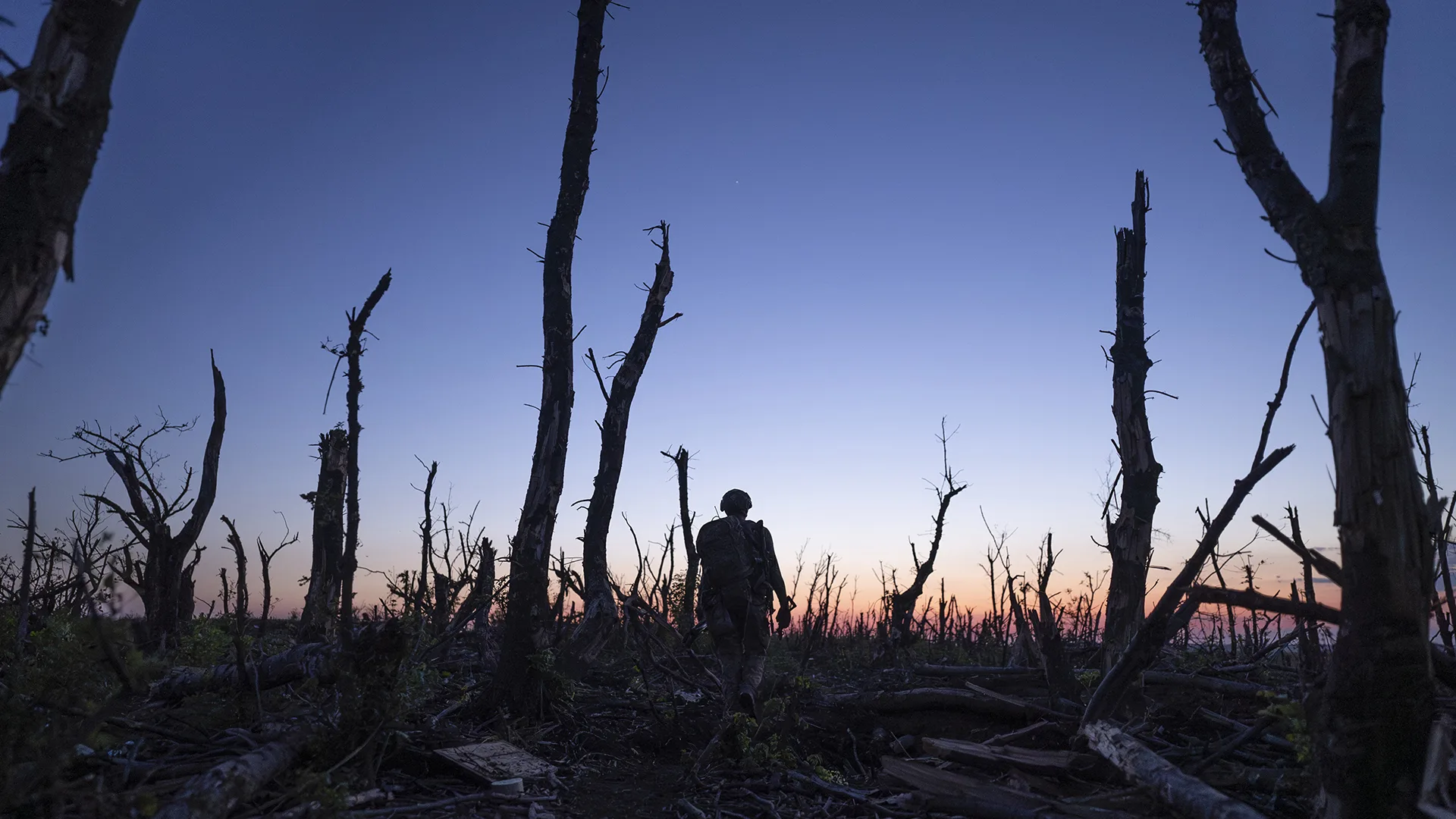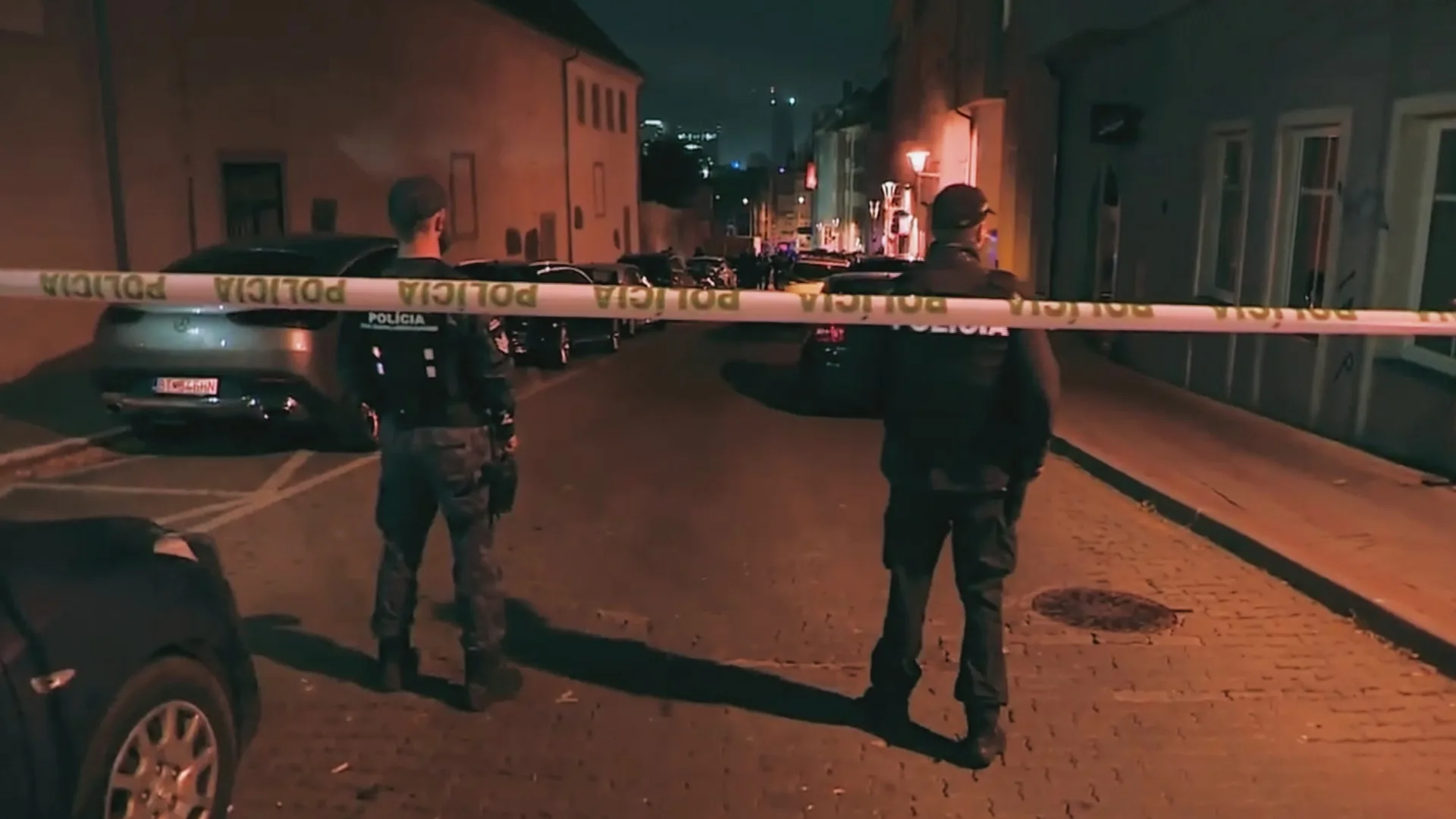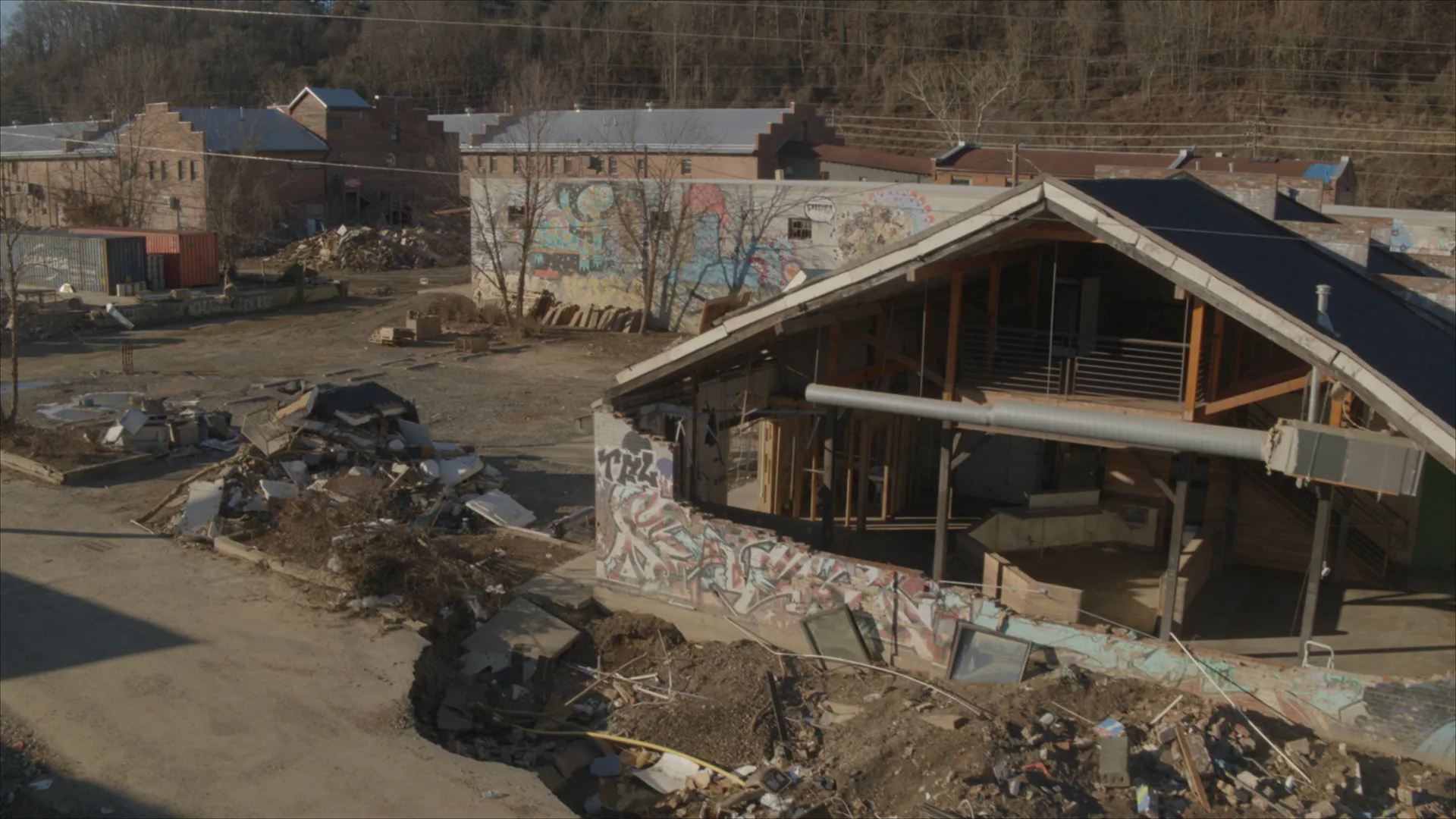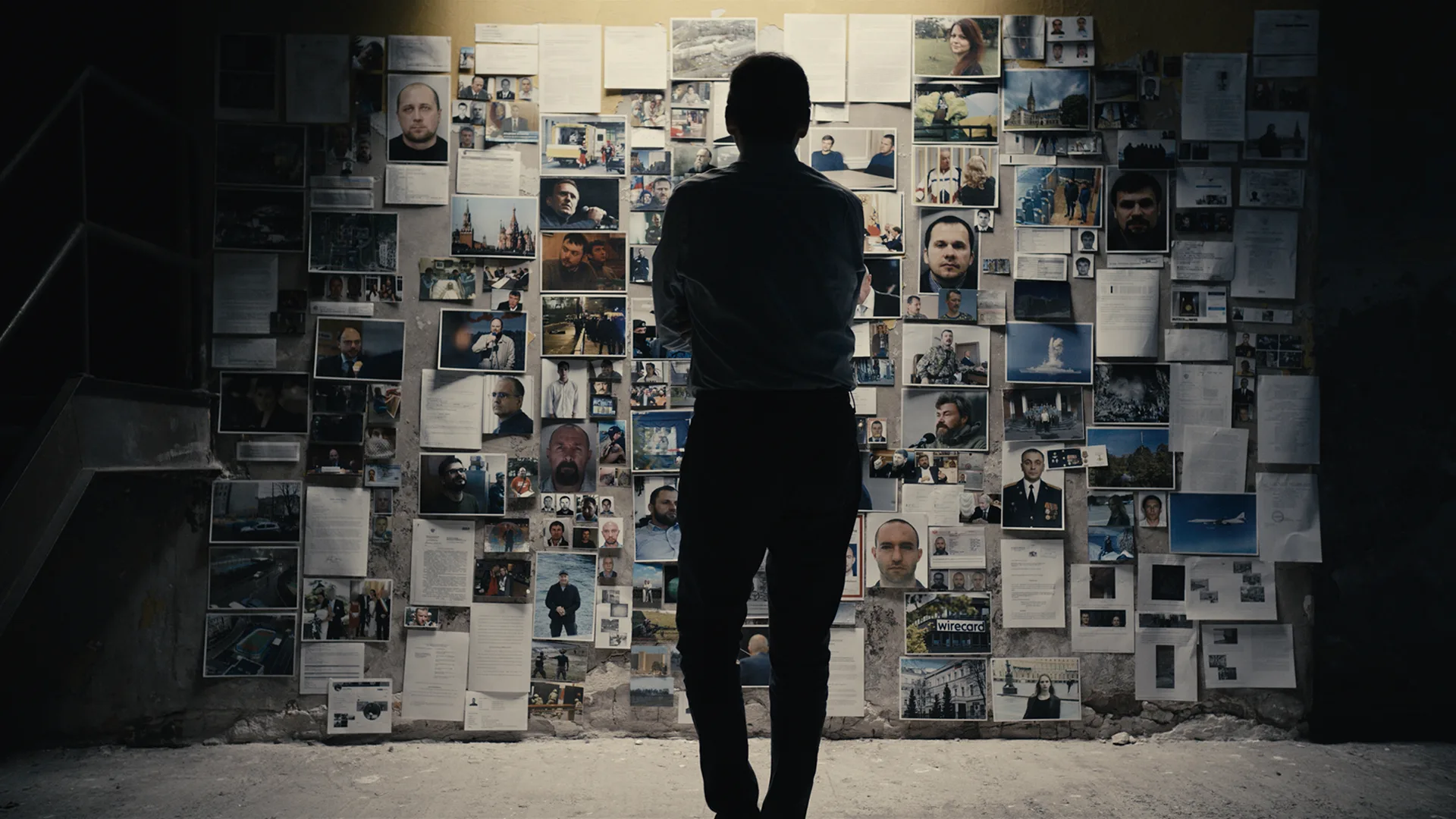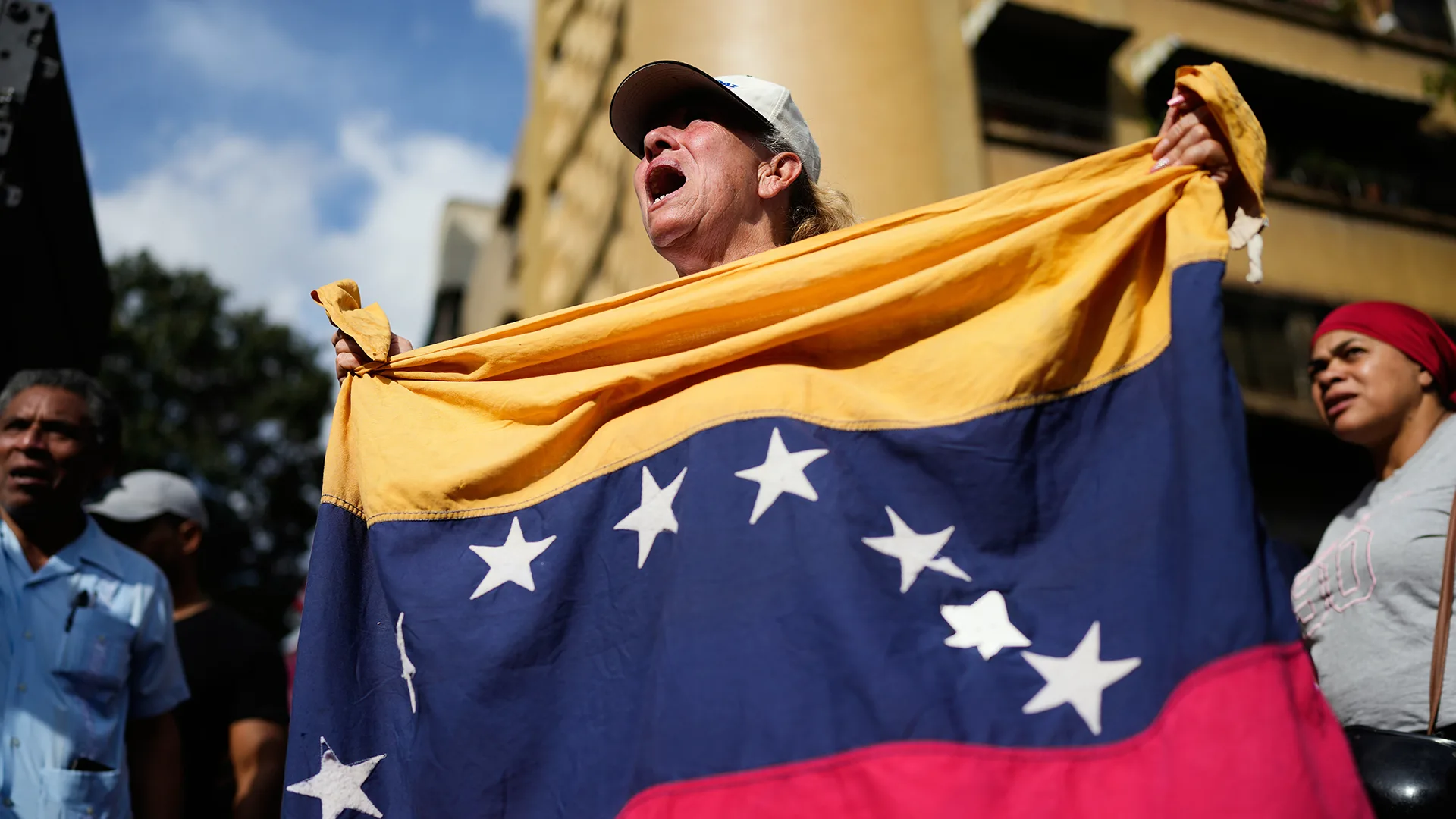Watch the Trailer
Ebola Outbreak
Premieres September 9, 2014
FRONTLINE reports from inside the deadliest Ebola outbreak on record
Ebola Outbreak
Share
FRONTLINE travels to the epicenter of the Ebola crisis to find out how and why the outbreak has spiraled out of control — and to track the fight to contain the virus’s deadly spread. With special access to teams fighting Ebola in Sierra Leone, FRONTLINE, in collaboration with the Channel 4 foreign affairs series Unreported World, brings you an up-close, on-the-ground look at how and why the outbreak is endangering civilians and health-care workers, overwhelming hospitals and getting worse.
This documentary is no longer available to stream.
Produced by
Transcript
Credits
Journalistic Standards
Support provided by:
Learn More
Most Watched
The FRONTLINE Newsletter
Related Stories

Exclusive Video: Where the Ebola Outbreak Began
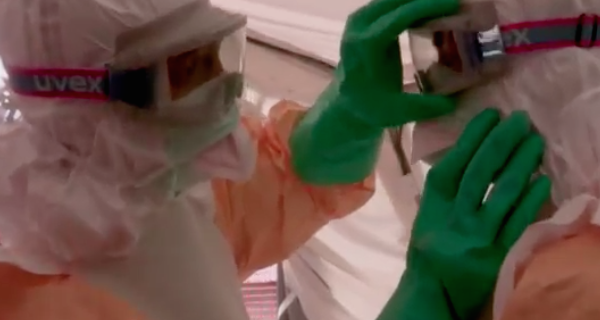
Watch “Ebola Outbreak” With the Filmmaker
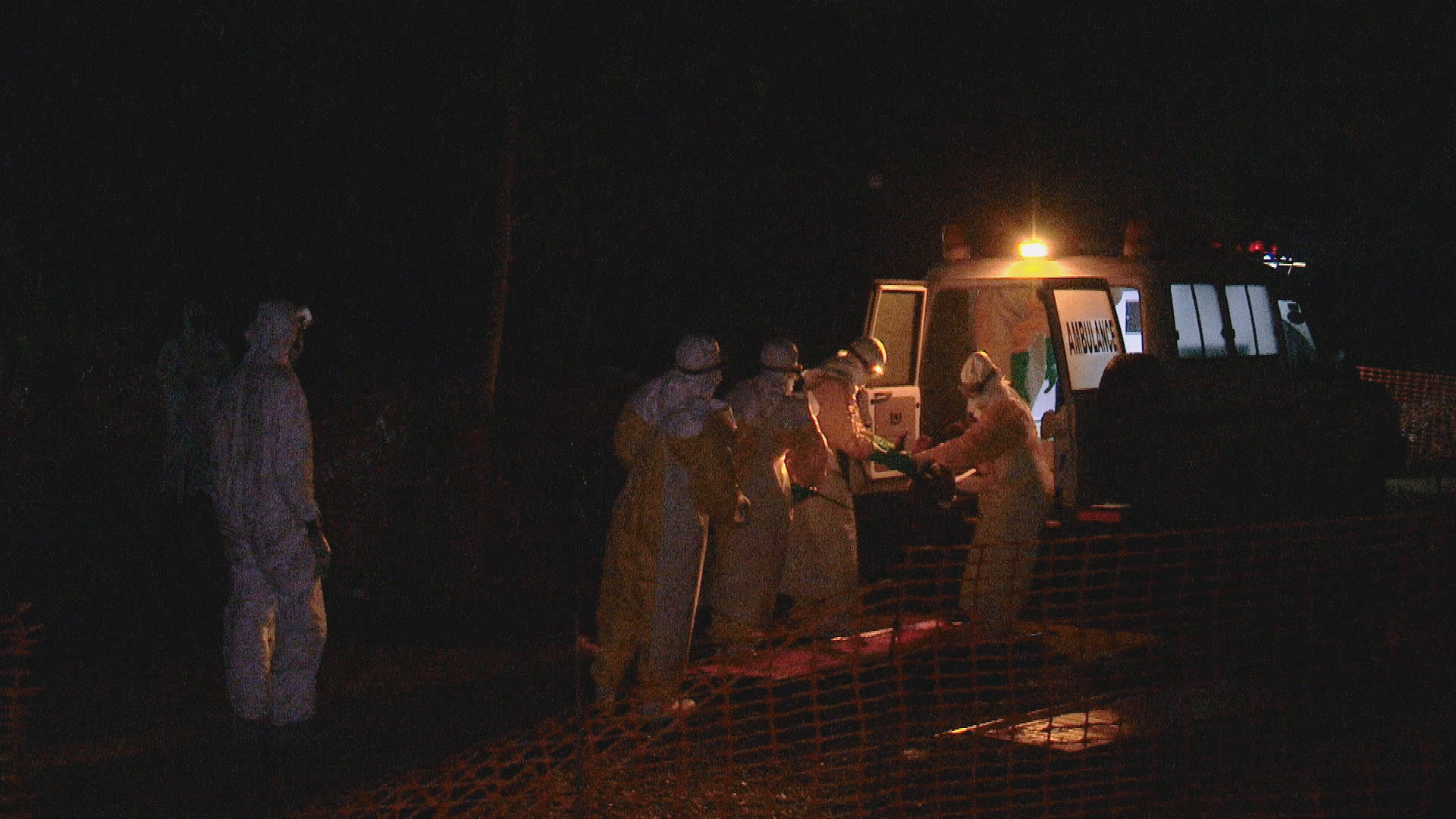
Representatives Push for Travel Ban at Ebola Hearing
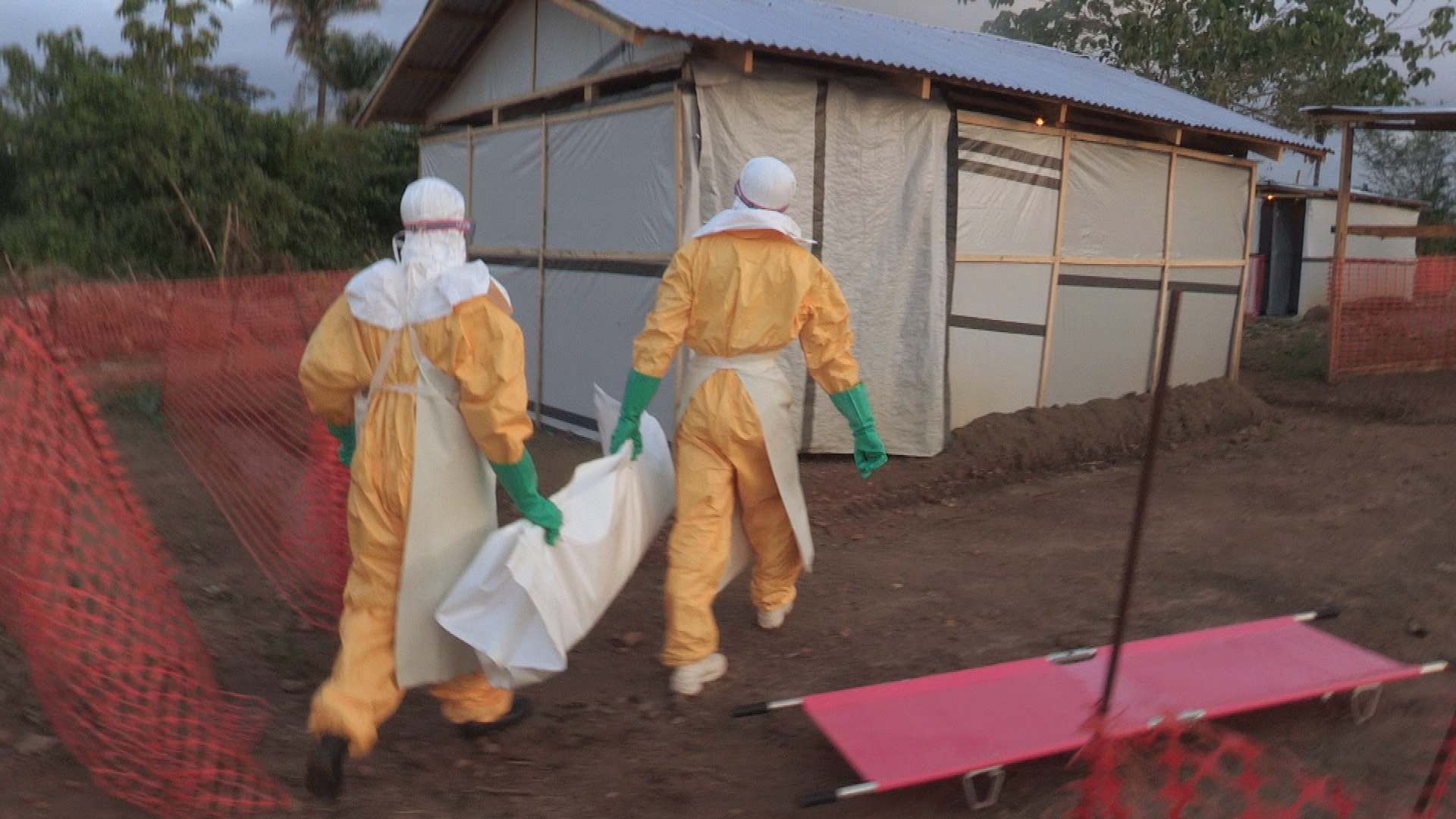
Ebola Educators Reported Killed in Guinea

Obama on Ebola: Without Help, Families Are “Waiting to Die” (Video)
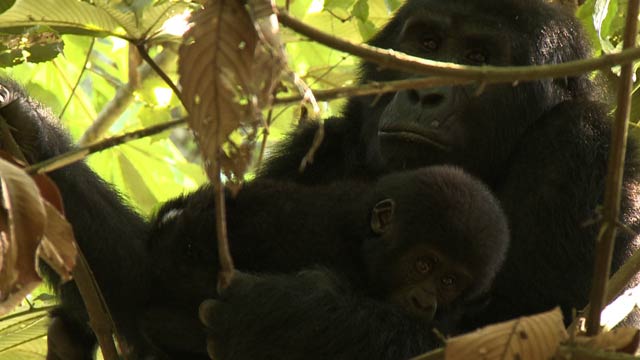
Uganda: Out of the Wild

Map: How the Ebola Outbreak Spread through Africa
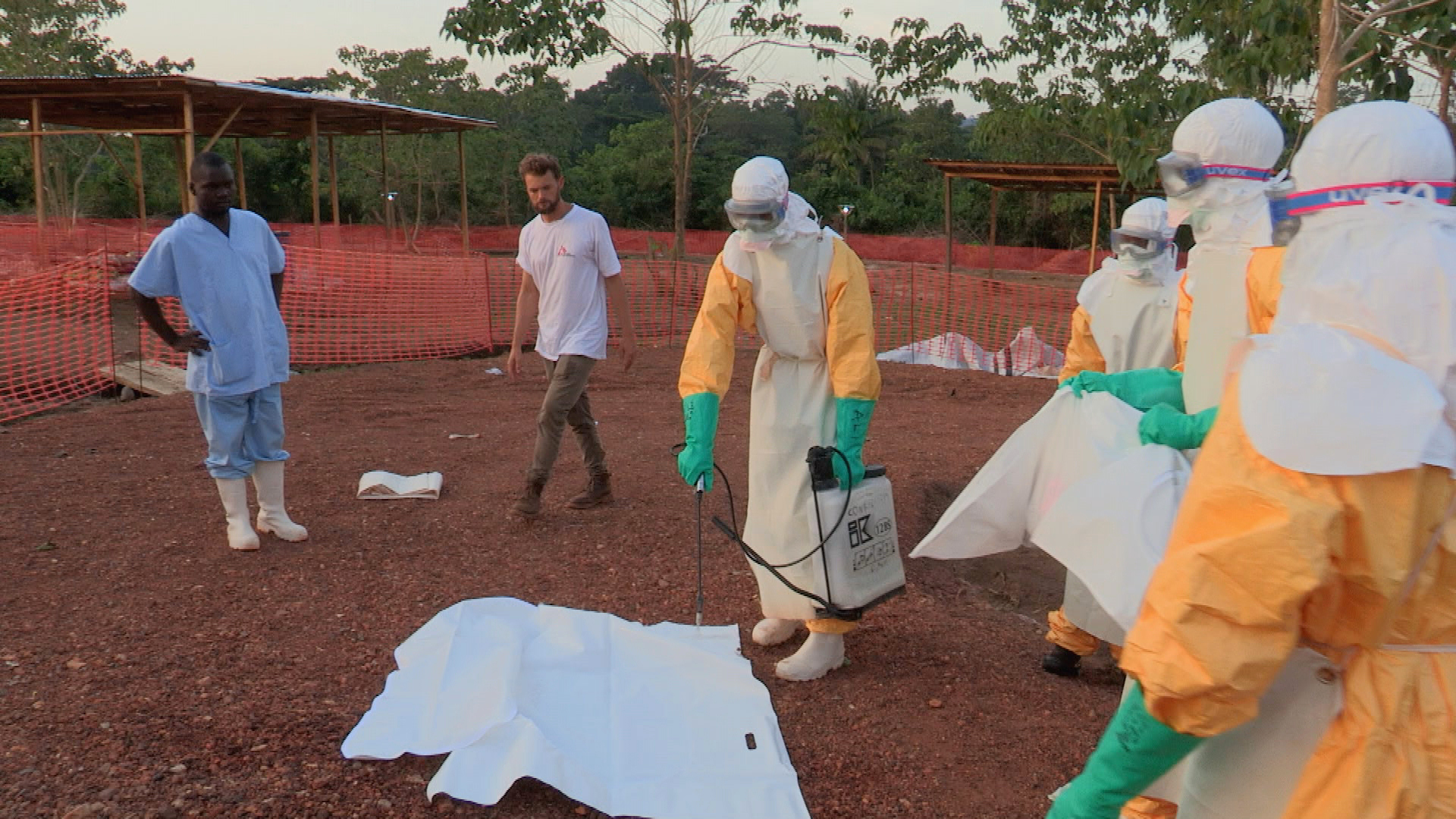
MSF on Ebola: “This is the Biggest Outbreak We’ve Ever Known”
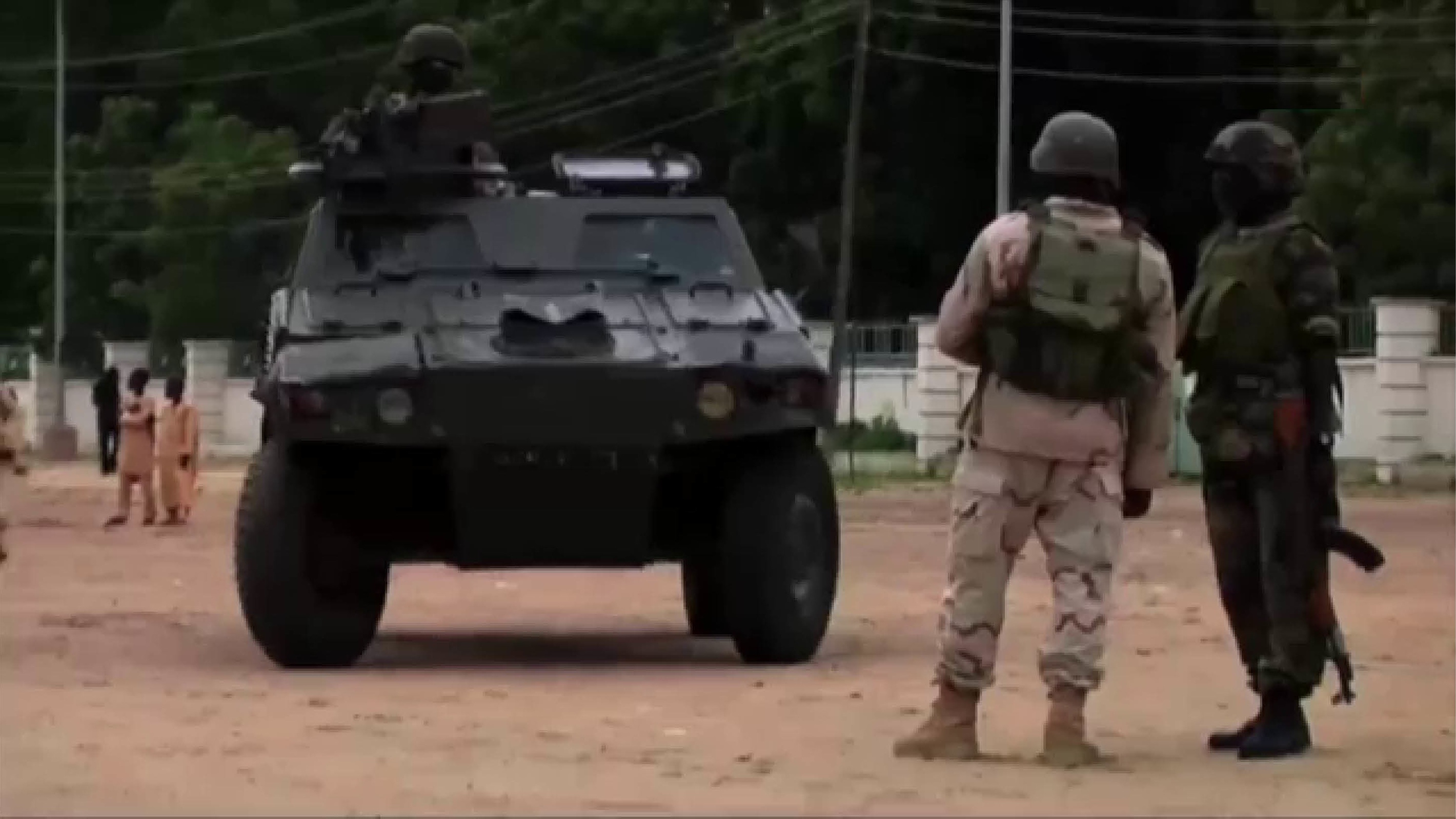
Hunting Boko Haram
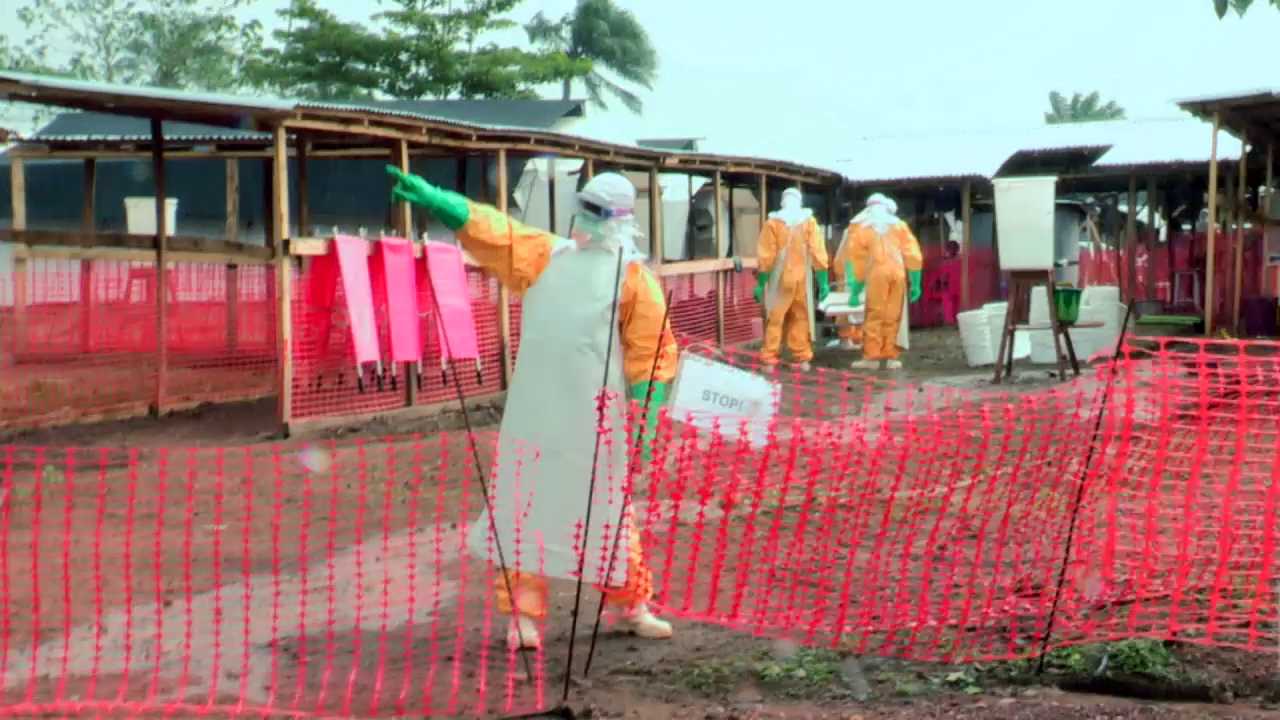
Inside the Ebola Outbreak
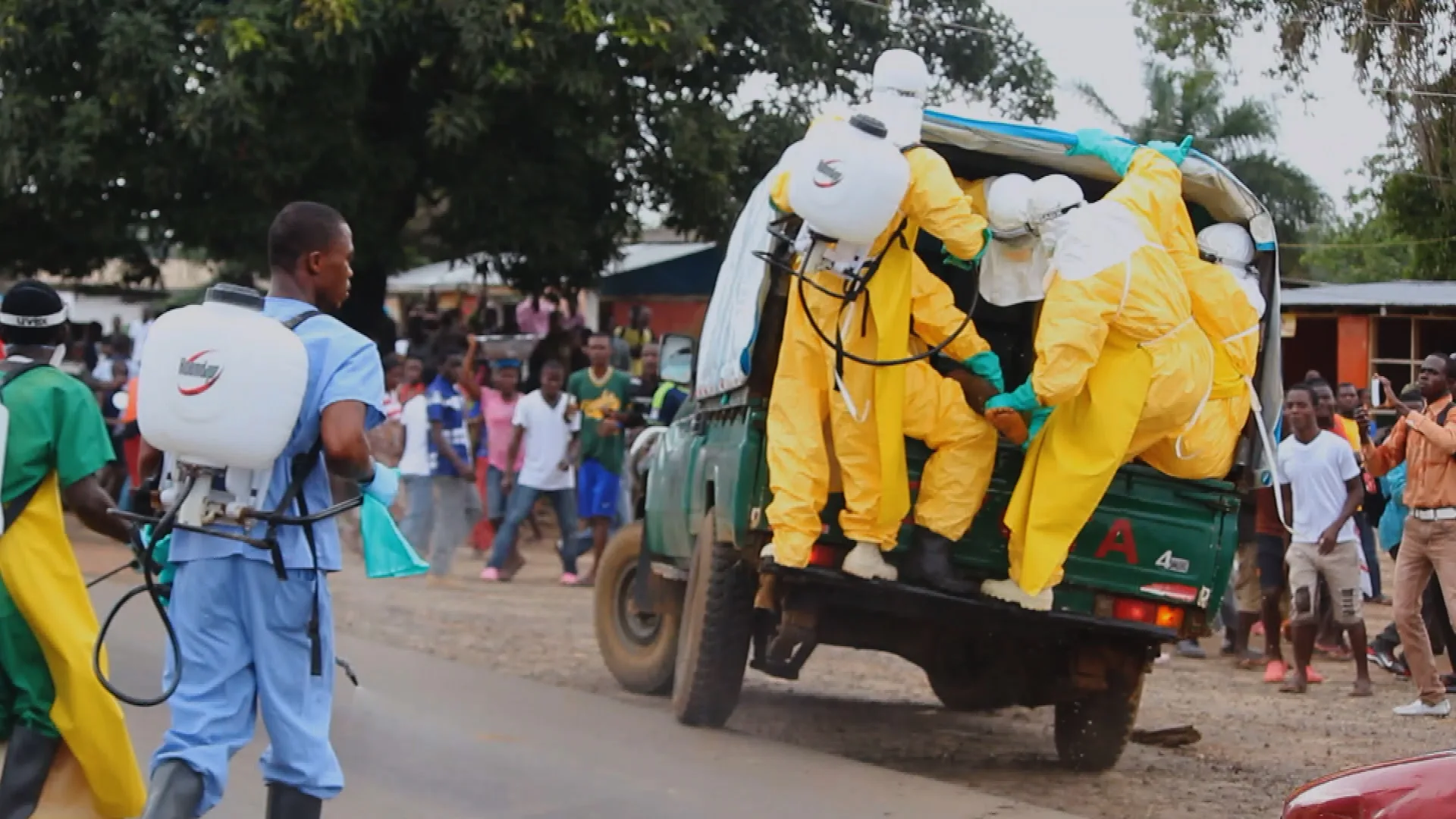
Outbreak
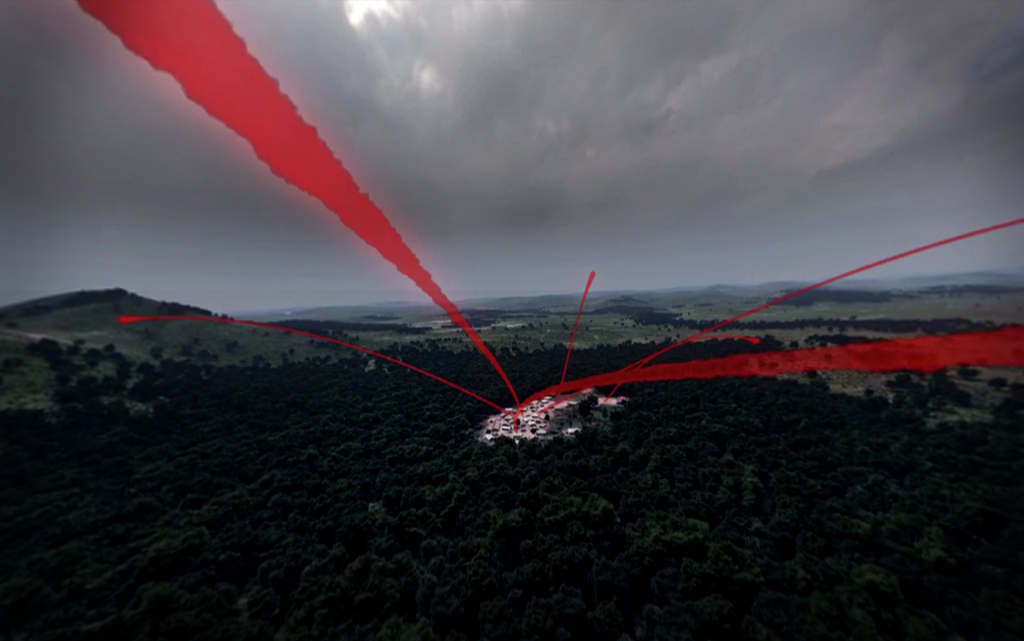
360 Video: Ebola Outbreak: A Virtual Journey
Related Stories

Exclusive Video: Where the Ebola Outbreak Began

Watch “Ebola Outbreak” With the Filmmaker

Representatives Push for Travel Ban at Ebola Hearing

Ebola Educators Reported Killed in Guinea

Obama on Ebola: Without Help, Families Are “Waiting to Die” (Video)

Uganda: Out of the Wild

Map: How the Ebola Outbreak Spread through Africa

MSF on Ebola: “This is the Biggest Outbreak We’ve Ever Known”

Hunting Boko Haram

Inside the Ebola Outbreak

Outbreak

360 Video: Ebola Outbreak: A Virtual Journey
REPORTER
Shaunagh Connaire
PRODUCED AND DIRECTED BY
Wael Dabbous
July 2014
NARRATOR: In Sierra Leone, West Africa, a catastrophe is unfolding, the world’s deadliest outbreak of Ebola. Sebastian Stein is part of the team at an emergency field hospital that’s been built by the relief group Doctors Without Borders.
SEBASTIAN STEIN: You see patients in the most horrible states, and— and you can have patients who come in one day, and the next day, I’m packing them in a body bag. People are dying left and right here.
Twitter #FrontlinePBS
NARRATOR: Another patient has just died. Sebastian, who’s in charge of the morgue, must enter the isolation tent to recover the body.
SEBASTIAN STEIN: [to team member] You need to be covered everywhere, so you have to have no exposed skin, so that there’s no chance of being in direct contact with— with a patient or with bodily fluids from a patient.
NARRATOR: The Ebola virus doesn’t travel through the air but through contact with bodily fluids.
SEBASTIAN STEIN: Here’s a tiny bit here. OK?
NARRATOR: The virus causes vomiting, diarrhea and bleeding. Simply touching a victim can be fatal.
Beyond the orange barrier are the wards holding patients infected with the virus. The latest victim is a 9-year-old boy. His body is still highly infectious. Sebastian’s morgue ledger is filling up.
SEBASTIAN STEIN: So we’ll put in number 78 now, in a few minutes. So yeah, and that’s just since the first— the first registration here is the 2nd of July, so that’s— yeah, that’s exactly one month tomorrow.
This isn’t a nice book. It’s thick. I hope we don’t need to fill the whole thing.
NARRATOR: An ambulance brings more victims, six members of the same family.
SEBASTIAN STEIN: This has spread at an unprecedented level. I mean, we’ve never seen such a large outbreak, ever in recorded history. And so now we come here to try to do to the best of our ability, but we’re always stretched.
1st NURSE: [subtitles] Ebola is the family destroyer!
2nd NURSE: [subtitles] When Ebola infects one person in a family, everybody dies. So be warned!
NARRATOR: Local nurses are on the streets, warning the outbreak is worsening. Even in the Doctors without Borders hospital, Ebola is killing 70 percent of those it infects. Because so few people who go to the hospital ever return, victims are hiding in their homes and infecting their families.
The only way to contain Ebola is to isolate the infected. Manjo Lamin works with one of Sierra Leone’s disease surveillance teams. It’s their job to find victims and get them to the Doctors without Borders hospital. But Manjo and his seven colleagues can’t keep up with the number of cases.
MANJO LAMIN: [subtitles] It’s not actually easy to find people who are willing to work, so the few willing ones have more work to do.
NARRATOR: Two weeks ago, Manjo went through a terrifying ordeal when he was quarantined with suspected Ebola. It turned out to be a false alarm and he returned to work. Now he’s about to head to another contaminated village.
MANJO LAMIN: If I give up, it’s like I’m putting more people at risk. They will transmit the disease to a lot of people, and many people will die. We’ll not be able to control the situation.
NARRATOR: The surveillance team has only four vehicles to monitor the half million people living at the center of the outbreak. They meet up with the vehicle that’s being used to transport Ebola victims. It’s a hearse.
MANJO LAMIN: [to hearse driver] Brake! Brake! Turn. We’re going to Pobengu.
It’s the mortuary van, but because we are pressed for materials, we are using it as an ambulance. For today, we will call it an ambulance because we expect to put a live patient there.
NARRATOR: They’re heading to a village where Ebola has already killed an old man. Everyone they encounter, even those who look healthy, could be infectious. The team used to wear protective clothing, but the suits terrified the villagers, who ran, hid and sometimes even attacked them. Manjo now relies on keeping his distance from everyone he meets.
MANJO LAMIN: [subtitles] My name is Manjo. And this is Ishata from the World Health Organization.
NARRATOR: A young woman is clearly unwell.
MANJO LAMIN: [subtitles] What’s wrong with you?
NARRATOR: Kadiatu Jusu is 25 years old, the mother of four children.
ISHATA: [subtitles] Do you have fever? Temperature?
KADIATU JUSU: [subtitles] Yes, I have a temperature, diarrhea, and I’m vomiting.
NARRATOR: Her husband, Fallah, is a farmer. He’s 35. It was his father who died two weeks ago. Ishata Conteh can see Kadiatu is almost certainly infected.
ISHATA: She actually fits into the case definition because she was the one taking care of the old man, feeding him, cleaning where the old man was vomiting. And there was direct physical contact.
MANJO LAMIN: [subtitles] I’m going to spray this area.
NARRATOR: Manjo disinfects Kadiatu’s home with chlorine. Everything she touched could have been contaminated. Ishata notes the names of everyone who’s been in close contact with Kadiatu. Her children and husband are at the top of the list.
ISHATA: All these 17 people here, if anyone gets fever or the cough or feels like they have malaria or pain all over their body, or vomits, or goes to the toilet a lot— any one of these symptoms, you must call us.
They are all like at risk. We need to monitor them for the next 21 days.
FALLAH JUSU: My father passed away. And she, too, is going with the same thing.
NARRATOR: Fallah can’t risk touching his wife to say goodbye.
ISHATA: I just feel sorry because people are dying.
[on the phone] We are on our way with a patient, with a suspected case — well, it’s a probable case, actually — to the center.
NARRATOR: They begin the two-hour journey to the Doctors Without Borders hospital. The local hospitals are barely functioning because so many doctors and nurses have died from Ebola.
ISHATA: [at the hospital] She has vomited, she said.
NARRATOR: The team at the hospital quickly begins to treat Kadiatu. Although there are no known cures for Ebola, sometimes the body can fight it off, especially if the victim can stay hydrated. A Canadian doctor, Tim Jagatic, passes anti-nausea drugs into the isolation ward.
Dr. TIM JAGATIC: We just gave her a medication to prevent the vomiting, and the RS solution just to rehydrate her, because she’s losing a lot of fluid and electrolytes. Our job here is just to kind of keep the body at an optimal state of health so that the immune system can kind of do its work, find the virus, create the antibodies, kill off the virus. And we’re just trying to clear the path for the immune system to get to that point.
NARRATOR: The van is disinfected, ready to pick up the next Ebola case on Manjo’s list.
The hospital is busy through the night. The pain and the symptoms caused by Ebola mean its victims get little sleep.
Dr. TIM JAGATIC: You need a flashlight?
Some nights are different than others. It all depends. Last night was kind of quiet. The night before, we had one death.
NARRATOR: When the hospital was built four weeks earlier, 64 beds seemed more than enough. That’s no longer the case.
Dr. TIM JAGATIC: Yeah, there’s, like, an onslaught of patients. We’re quickly filling up. We’re getting a lot more patients coming in now.
ANJA WOLZ, Doctors Without Borders: This is another problem because one doctor was treating the patient as typhoid.
NARRATOR: Anja Wolz, from Germany, is the Doctors Without Borders emergency coordinator. She says the Sierra Leone government and the international community were slow to react to the virus when it initially appeared.
ANJA WOLZ: To be honest, I feel helpless and frustrated. I always think about my first day. One guy came to me and told me, like, “My brother died, my sister died, my wife died, my child died. Nobody came to disinfect the houses, and I got three body bags for four people. But I don’t know how to use it.” And I was thinking, “Oh [expletive deleted]. We are too late.”
[www.pbs.org: The race to find and treat patients]
NARRATOR: An ambulance arrives, bringing a woman and her little girl. The mother has died on the journey. As the body is carried to the morgue, the girl cries out.
FATMATA: [subtitles] I’m feeling cold! Sir! I’m feeling cold!
NARRATOR: Her name is Fatmata. She’s 7 years old. Her grandmother died of Ebola at home. As is customary in Sierra Leone, Fatmata touched her body at the funeral.
Sebastian has just been inside the wards to retrieve another body. He saw Fatmata.
SEBASTIAN STEIN: Another patient passed away on the floor right next to this poor little girl. So she’s gone through a lot now. We come in dressed up like spacemen, and we can try and say nice things, but the fright and the terror of being alone as a child in a hospital, especially in these circumstances, it’s just— it’s too much for any small child.
NARRATOR: Later that day, Fatmata died.
Nearby, Kadiatu’s symptoms are growing worse. And now the hearse that doubles as an ambulance has arrived with another case from her village. It’s her husband, Fallah, whose father died in this hospital two weeks ago.
NURSE: [subtitles] When did you start feeling sick?
FALLAH JUSU: [subtitles] Actually, yesterday. My wife was sick, and they came for her.
NURSE: [subtitles] So how are you feeling?
FALLAH JUSU: [subtitles] I have a cough. And a headache also. I also feel pain in my back.
NARRATOR: He’s left their four children in the village and joins his wife in the isolation ward.
NARRATOR: Manjo wants to talk to the couple. The fence keeps them six feet apart.
[subtitles]
MANJO LAMIN: Hello, Kadiatu. How are you feeling now?
KADIATU JUSU: Better, thank God.
MANJO LAMIN: A bit better since yesterday? I see you smiling.
Hey, Mr. Fallah Jusu! Do you have a message for your family?
FALLAH JUSU: Tell them to pray to God for us.
MANJO LAMIN: God will protect you, and we will try, too.
KADIATU JUSU: I’m sad because I left my children behind.
FALLAH JUSU: We believe that God will protect the children, and we hope they will not follow the same path as us.
SEBASTIAN STEIN: You found this body in the center of town?
MEN: Yes.
SEBASTIAN STEIN: In Kailahun?
MEN: Yes.
NARRATOR: A dead girl has just been brought to the field hospital.
SEBASTIAN STEIN: You came here and you spoke to the doctor?
MAN: Yes.
SEBASTIAN STEIN: But before?
NURSE: [subtitles] Before you called the doctor, who told the doctor about this case?
NARRATOR: But nobody knows who she is.
SEBASTIAN STEIN: Just hold on and I’ll just try to figure out what’s happened, OK? This guy can’t explain properly where the body is coming from.
TEAM MEMBER: There’s a body here?
SEBASTIAN STEIN: Yeah, it’s a— it’s pediatric body bag in there, so—
NARRATOR: Each new victim who arrives here has potentially infected more people. If they can’t be traced, then the virus will continue to spread.
SEBASTIAN STEIN: We’ll put the body in our mortuary here over the night until we can figure out what— who this is and why this body was brought like this.
So if you can spray the bag, and then we’ll take it out and we’ll put it in another bag.
I don’t think you can get prepared for this. You have to just look at it as a job. It’s—
NARRATOR: Manjo and his team head out to a remote village, where two more victims have recently died. They are now in pursuit of yet another infected man.
MANJO LAMIN: Hello! Come here!
NARRATOR: There’s no sign of the infected man, and the villagers won’t cooperate.
ISHATA: They’re scared of us. Why?
MANJO LAMIN: Why are you afraid?
ISHATA: [subtitles] Come and talk to us. Aren’t we human?
NARRATOR: Manjo says the villagers are afraid of going to the hospital, and they don’t realize the infected man could spread the virus.
MANJO LAMIN: These are some of the challenges we get in the field. Some people are scared. Some people still feel if they go to the camp, something will happen to them.
NARRATOR: They have to give up and move on.
ISHATA: For all you know, maybe he is in there. They will hide them. You see when we came, they were running away.
NARRATOR: They later hear that the infected man has fled his village into neighboring Guinea, taking the virus with him.
[www.pbs.org: More about the spread of Ebola]
One of the reasons the outbreak has persisted is that infected people travel freely across the borders between Sierra Leone, Liberia and Guinea. It’s causing panic and unrest.
In nearby Kenema, the third largest town in Sierra Leone, rumors about the virus have brought people onto the streets. A story is going around that Ebola is a hoax, a trick devised by doctors to steal people’s blood. The rioters are trying to break down the hospital gates and rescue the patients inside.
BYSTANDER: [listening to radio] [subtitles] They say this Ebola is a lie. It’s not Ebola. They want people’s blood. That’s what they’re saying.
NARRATOR: The police use tear gas and fire live bullets to disperse the rioters. But the rumors that Ebola is a hoax mean that more victims hide in their homes, infecting their families and neighbors.
NARRATOR: Back at the field hospital, it’s Kadiatu’s sixth night in isolation. She’s still very sick, but she’s more worried about her husband, Fallah.
KADIATU JUSU: [subtitles] I can still walk a bit, but he can’t. When he tries to stand up, he falls over. I can get up, stand up a bit and walk around.
[subtitles]
NURSE: How are you feeling?
FALLAH JUSU: My body is weak.
NURSE: Your body is weak? Are you able to eat?
FALLAH JUSU: No, I can’t.
NARRATOR: Fallah’s battle with the virus is reaching a critical phase.
With both Fallah and Kadiatu in the hospital, Manjo returns to their village to check on their four sons.
MANJO LAMIN: [subtitles] Where are Fallah’s children?
VILLAGER: [subtitles] Here they are.
NARRATOR: To everyone’s relief, they are healthy. But they’re missing their mom and dad.
MANJO LAMIN: [subtitles] Nobody is sick, right?
NARRATOR: They record a get well message.
MANJO LAMIN: [subtitles] How do you feel without your mom and dad?
ELDEST CHILD: [subtitles] I feel bad.
MANJO LAMIN: [subtitles] Why do you feel bad?
ELDEST CHILD: [subtitles] Because we don’t get to see them.
MANJO LAMIN: I do not actually feel fine. They need care. I just hope their parents get well soon and join them.
NARRATOR: Manjo returns to the hospital with the children’s message.
KADIATU JUSU: [subtitles] The eldest is named Sahr. Next to him is Tamba, and his brother, Fayia.
NARRATOR: Against the odds, Kadiatu is feeling better.
KADIATU JUSU: [subtitles] I’m getting back to my normal self. If only their father could be here, but he can’t stand up. Maybe God will help him walk tomorrow. But he can’t stand up.
MANJO LAMIN: [subtitles] Fallah is back. Oh, my God!
NARRATOR: Fallah been vomiting blood, but he wants to see the message from his children.
MANJO LAMIN: [subtitles] How are you feeling?
FALLAH JUSU: [subtitles] I’m vomiting.
MANJO LAMIN: [subtitles] You’re vomiting?
Fallah is much more sick than Kadiatu. Anything he eats, he vomits.
NARRATOR: By August, the hospital is full. The dead are taken to a nearby clearing.
SEBASTIAN STEIN: It’s really horrible, right? You’re just walking, trying not to step on the graves, trying to show some respect. But at the same time, it’s so un-ceremonial. And it is going to continue to grow, I’m afraid.
1st GRAVE DIGGER: I lost my brothers. I lost my sisters. I lost my best friends.
NARRATOR: The grave diggers are volunteers. They’ve each lost a number of loved ones.
2nd GRAVE DIGGER: Two.
3rd GRAVE DIGGER: My mother, my son and my father.
4th GRAVE DIGGER: Likewise myself, because he is my elder brother
5th GRAVE DIGGER: Five
6th GRAVE DIGGER: Three.
7th GRAVE DIGGER: Four good people. Four good people.
NARRATOR: Officially, this Ebola outbreak has claimed over 1,900 lives, but the real figure is believed to be higher and rising fast. The World Health Organization warns the virus could ultimately infect more than 20,000 people.
[The day after filming finished, Fallah died. Kadiatu has made a full recovery and is back with her children]
EBOLA OUTBREAK
September 9, 2014
PRODUCED, DIRECTED AND FILMED BY
Wael Dabbous
REPORTED BY Shaunagh Connaire
LOCAL PRODUCER Abu-Bakarr Jalloh
EDITED BY Ian Corcoran
ADDITIONAL EDITING Gary Beelders Will Ennals Paul Meadows
SENIOR PRODUCER Dan Edge
NARRATOR Will Lyman
ONLINE EDITOR/COLORIST Jim Ferguson
SOUND MIX Christopher D. Anderson
ADDITIONAL TRANSLATION Falla D. Lamin
FOR QUICKSILVER MEDIA
PRODUCTION COORDINATOR Laura Henderson
PRODUCTION MANAGER Kayla Richardson
HEAD OF PRODUCTION Natalie Triebwasser
COMPOSERS Hamlin and Joliffe Samuel Sim
ASSOCIATE PRODUCER Laura Warner
SERIES PRODUCERS Monica Garnsey Suzanne Lavery
EXECUTIVE PRODUCER Eamonn Matthews
A Quicksilver Media production for WGBH/FRONTLINE in collaboration with Channel 4’s Unreported World series
(c) 2014 Quicksilver Media, Ltd.
FOR FRONTLINE
PRODUCTION MANAGER Megan McGough Christian
ON-AIR PROMOTION PRODUCER Missy Frederick
ON-AIR PROMOTION EDITORS Barry Clegg John MacGibbon
ASSISTANT EDITOR Eric P. Gulliver
POST PRODUCTION ASSISTANT Kenzie Audette
FOR WGBH OUTPOST
DIRECTOR OF POST PRODUCTION Chris Fournelle
SENIOR DIRECTOR PRODUCTION TECHNOLOGY Tim Mangini
SERIES MUSIC Mason Daring Martin Brody
DIRECTOR OF AUDIENCE DEVELOPMENT Pamela Johnston
PUBLICITY ACCOUNT MANAGER Patrice Taddonio
DIGITAL MARKETING ASSISTANTS Robert Collins Caroline Reilly
SECRETARY Christopher Kelleher
EDITORIAL SECRETARY Sophie Gayter
RECORDS MANAGER John Campopiano
CONTENT MANAGER Lisa Palone
LEGAL Eric Brass Jay Fialkov Janice Flood
CONTRACTS MANAGER Gianna DeGiulio
UNIT MANAGER Varonica Frye
DIRECTOR OF BUSINESS Tobee Phipps
DIGITAL RESEARCH ASSISTANT Priyanka Boghani
DIGITAL ASSOCIATE PRODUCER Jason Breslow
DIGITAL VIDEO PRODUCER Michelle Mizner
SENIOR DESIGNER Evan Wexler
DIGITAL REPORTER Sarah Childress
ASSISTANT MANAGING EDITOR FOR DIGITAL MEDIA Sarah Moughty
POST COORDINATING PRODUCER Robin Parmelee
SERIES COORDINATING PRODUCER Carla Borras
SPECIAL COUNSEL Dale Cohen
SENIOR EDITORIAL CONSULTANT Louis Wiley Jr.
SERIES SENIOR EDITOR Andrew Metz
SERIES MANAGER Jim Bracciale
DEPUTY EXECUTIVE PRODUCER Raney Aronson-Rath
EXECUTIVE PRODUCER David Fanning
(c) 2014 WGBH Educational Foundation All Rights Reserved
FRONTLINE is a production of WGBH/Boston, which is solely responsible for its content.
Explore
Policies
Teacher Center
Funding for FRONTLINE is provided through the support of PBS viewers and by the Corporation for Public Broadcasting, with major support from Ford Foundation. Additional funding is provided the Abrams Foundation, Park Foundation, John D. and Catherine T. MacArthur Foundation, Heising-Simons Foundation, and the FRONTLINE Trust, with major support from Jon and Jo Ann Hagler on behalf of the Jon L. Hagler Foundation, and additional support from Koo and Patricia Yuen. FRONTLINE is a registered trademark of WGBH Educational Foundation. Web Site Copyright ©1995-2025 WGBH Educational Foundation. PBS is a 501(c)(3) not-for-profit organization.
